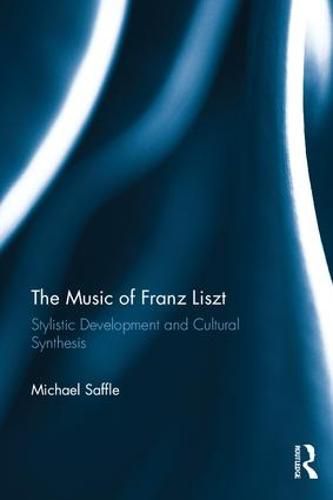Readings Newsletter
Become a Readings Member to make your shopping experience even easier.
Sign in or sign up for free!
You’re not far away from qualifying for FREE standard shipping within Australia
You’ve qualified for FREE standard shipping within Australia
The cart is loading…






Much of Franz Liszt’s musical legacy has often been dismissed as ‘trivial,’ ‘puerile,’ or ‘merely showy,’ more or less eccentric contributions to nineteenth-century European culture. But Liszt was a mainstream composer in ways most of his critics have failed to acknowledge; he was also an incessant and often extremely successful innovator. Liszt’s mastery of genre, fantasy, and sonata traditions, his painstaking settings of texts ranging from erotic verse to portions of the Catholic liturgy, and the remarkable self-awareness he demonstrated even in many of his most ‘entertaining’ pieces stamp him not only as a master of Romanticism and an early Impressionist, but as a precursor of Postmodern ‘pop.’ Liszt’s Music places Liszt in historical and cultural focus. At the same time, it examines his principal contributions to musical literature and thinking – from his earliest operatic paraphrases to his final explorations of harmonic and formal possibilities. Liszt’s compositional methods, including his use of sketchbooks, his penchant for revision, and problems associated with early editions of some of his works are also discussed. The first book-length assessment of Liszt as composer since Humphrey Searle, Liszt’s Music is illustrated with more than 160 musical examples.
$9.00 standard shipping within Australia
FREE standard shipping within Australia for orders over $100.00
Express & International shipping calculated at checkout
Much of Franz Liszt’s musical legacy has often been dismissed as ‘trivial,’ ‘puerile,’ or ‘merely showy,’ more or less eccentric contributions to nineteenth-century European culture. But Liszt was a mainstream composer in ways most of his critics have failed to acknowledge; he was also an incessant and often extremely successful innovator. Liszt’s mastery of genre, fantasy, and sonata traditions, his painstaking settings of texts ranging from erotic verse to portions of the Catholic liturgy, and the remarkable self-awareness he demonstrated even in many of his most ‘entertaining’ pieces stamp him not only as a master of Romanticism and an early Impressionist, but as a precursor of Postmodern ‘pop.’ Liszt’s Music places Liszt in historical and cultural focus. At the same time, it examines his principal contributions to musical literature and thinking – from his earliest operatic paraphrases to his final explorations of harmonic and formal possibilities. Liszt’s compositional methods, including his use of sketchbooks, his penchant for revision, and problems associated with early editions of some of his works are also discussed. The first book-length assessment of Liszt as composer since Humphrey Searle, Liszt’s Music is illustrated with more than 160 musical examples.